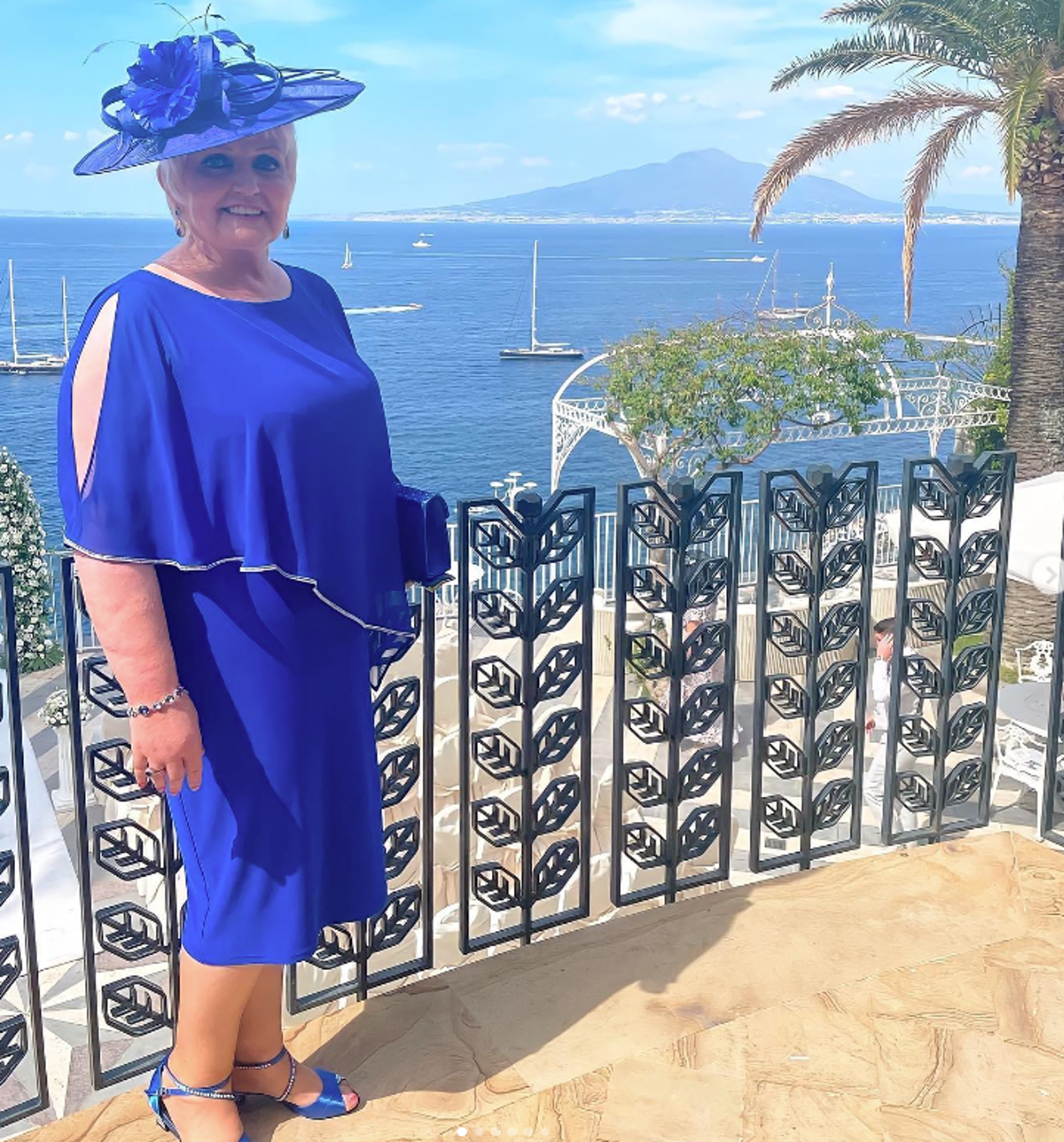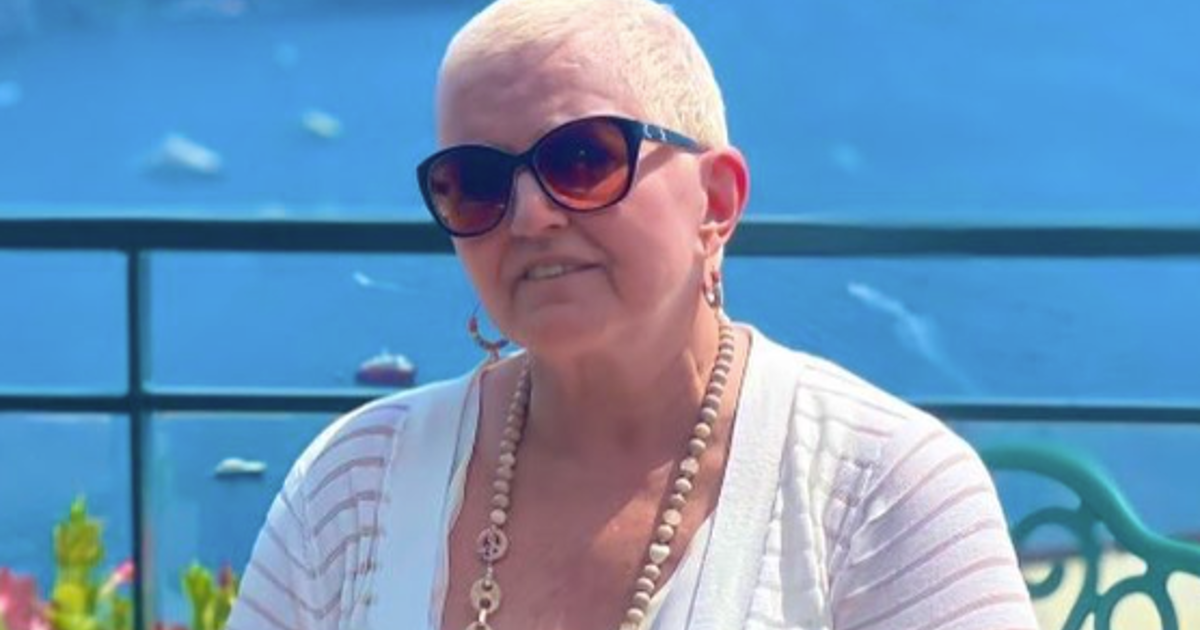Nolan Sisters Battle Cancer
- Linda Nolan, 63, is the third sister in her family to get breast cancer. She is battling the disease alongside her sister, Anne Nolan; the two underwent chemo together.
- Despite suffering from incurable secondary breast cancer, Linda strives to make the best of her life. Just this month, the Irish singer traveled to Italy to see her nephew get married.
- 10% of all breast cancers are hereditary, and genetic screening can help you determine if you are at risk.
As Linda lives with secondary breast cancer and also suffers from lymphedema, she openly recognizes all this life has to offer. The 63-year-old singer took some time this month to go to her nephew Danny’s wedding in Sorrento, Italy, something she described as a “blessing” to attend.
Read More
But again, this is just something Linda had learned to deal with. “It’s the reason why I always wear loose tops for the ease of getting them over my arm. There are treatments that help to reduce it and I’ve tried them, but you must work at it, so I have learned how to live with it,” she addd. “It has been one of my biggest and to me, most visible, insecurities. Even now, when people ask for pictures with me, I instinctively stand on the right, so I can put my arm behind them.”
Linda, who rose to fame with sisters Maureen, Anne, Bernie, and Coleen in the band The Nolans, was first diagnosed with breast cancer in 2006. In the course of her battle, she was diagnosed with secondary cancer on her pelvis in 2017. According to Euro Weekly News, "The singer first found a lump in her breast in 2005 and after tests was told she had stage three cancer. After a course of chemotherapy, she was given the all-clear a year later, in 2006. However, 10 years later she found that the cancer was back and had spread to her hip."

Two other Nolan sisters have also been diagnosed with breast cancer: Anne, who underwent chemotherapy with Linda, was first diagnosed and recovered in 2000 and then again in 2020, while Bernie was diagnosed in 2010 and sadly passed away in 2013.
Family History & Breast Cancer
Women like the Nolan sisters with a lengthy family history of breast cancer are more likely to contract the disease themselves: as many as 10% of breast cancers are hereditary. Certain gene mutations, like BRCA1 or BRCA2, can be inherited and increase your likelihood of developing breast cancer.
Knowing your family history of breast cancer is crucial to developing a plan to detect and treat the disease should it develop. To know whether your genes put you at an increased risk of breast cancer, experts recommend women go through genetic testing to detect mutations like BRCA1 or BRCA1. While genetic screening might not help people without a family history of breast cancer, it can be lifesaving for those with a history to see if they are at higher risk.
"The real question of who is going to qualify for genetic testing is, to be honest, a moving target," Dr. Ophira Ginsburg, Director of NYU Langone's High-Risk Cancer Program, told SurvivorNet in a previous interview. "Nowadays, you can even self-refer and ask for testing. We encourage only those who have a family history to really get that kind of service if you need it."
Should I Get Genetic Testing to Assess My Risk for Breast Cancer?
Understanding your unique genes could help you and your doctor understand your risk for breast cancer and help inform the best screening and treatment plan for you.
Staying Positive And Finding Support
"A positive attitude is really important," says Dr. Zuri Murrell, a colorectal surgeon at Cedars-Sinai Medical Center in Los Angeles.
If you have just been diagnosed with cancer, negative feelings are normal. Totally normal. Men and women react differently. Anger, shame, fear, anxiety. It's to be expected. Experienced doctors will tell you that people who find a way to work through their emotions and stay positive do end up doing better.
Another critical thing for anyone battling cancer is the feeling that they are being supported and loved during this difficult experience. Experts have told SurvivorNet that going through cancer while feeling supported can actually make people feel even more gratitude for things they may have taken advantage of in the past. This gratitude can be towards loved ones, special memories, or milestones they hope to achieve after treatment.
"The patients who do well with cancer live life with that kind of gratitude, but in terms of everything," Dr. Murrell previously told SurvivorNet. "They're grateful, not for cancer, but they're grateful for an opportunity to know that life is finite, but they live life like 'I love you' to their husband, to their wife, to their kids, knowing that they appreciate it for one of the first times ever because they know it may not be forever that they get to do this."
Contributing: Survivornet Staff
Learn more about SurvivorNet's rigorous medical review process.


